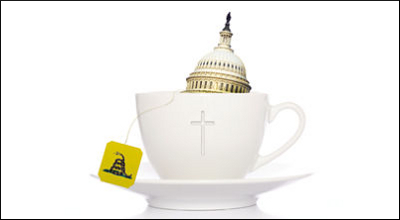‘Teavangelicals’ Ushering in a New Great Awakening?
When the Tea Party started its political rise, the clear focus was economic—specifically the U.S. deficit, taxes and spending.
Social issues took a back seat, but that didn’t stop Christians from joining and strengthening this new movement.
The result was the “teavangelical,” conservative Christians who are part of the Tea Party or at least agree with their agenda.
They travel the country calling for a better America, a return to Judeo-Christian principles and economic plans for a deficit-free future.
They come in all shapes and sizes, from the farm, town square and even Capitol Hill.
“Well, I absolutely am [a Teavangelical] because I believe that we are taxed enough already,” Tea Party Rep. Michele Bachmann, R-Minn., told CBN News.
“Government shouldn’t spend more money than what it takes in,” she said. “We should follow the Constitution. And I’m a believer in Jesus Christ, so I think that makes me a Teavangelical.”
Some Teavangelicals like Kellen Guida have great stories to tell. Guida went from being a non-believing Tea Party leader in New York to a born-again Christian after hearing about Jesus from other party members during a political retreat.
“It was loud, boisterous, praying, talking about our faith all the time,” Guida said. “And it was a new experience for me. And it was an overwhelming experience for me, and I just loved it.”
CBN News Chief Political Correspondent David Brody’s new book, The Teavangelicals: The Inside Story of How the Evangelicals and The Tea Party are Taking Back America, reveals that without evangelicals there might not be much of a Tea Party movement in the first place.
Studies show that conservative Christians comprise at least half, if not more, of the Tea Party. So why have they signed up?
“I really think a lot of the motivation behind these Tea Party crowds is a spiritual component,” Sen. Jim DeMint, R-S.C., told CBN News. “I think it’s very akin to the Great Awakening before the American Revolution.”
“People are seeing this massive government growing and they’re realizing that it’s the government that’s hurting us,” he said. “And I think they’re turning back to, God in effect is our salvation and government is not our salvation.”












